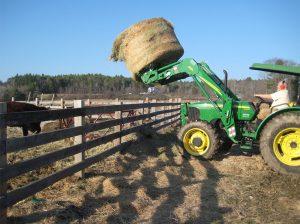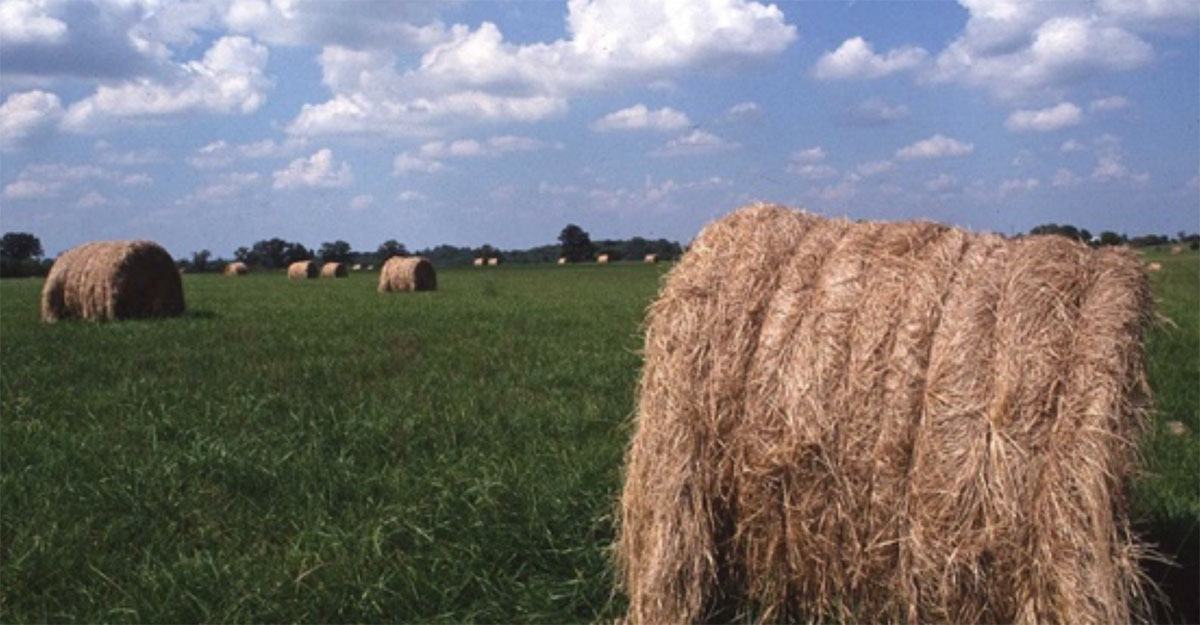Preparing for Agricultural Worksite Assessments
Preparing for Agricultural Worksite Assessments (PDF)
Maine AgrAbility provides agricultural worksite assessments for agricultural production workers. If you are planning to participate in an AgrAbility assessment, please review the following information and be properly prepared. Always feel free to ask questions or express concerns.
What to Expect
Each assessment is unique, but on average prepare for:
- A 2- to 3-hour visit
- Informal, yet detailed evaluation
- Majority of time spent outdoors or in farm buildings
- May walk through mud, manure, and over rough terrain
- May be near equipment or livestock
- Agricultural worker may continue performing work-related tasks during the visit
- ‘Rain or shine’ weather conditions
If you have accessibility concerns, please contact our staff ahead of time.
What to Wear
Prepare to be outdoors, in an agricultural setting, in and near equipment and buildings.
- Wear clothes that you do not mind getting dirty.
- Wear closed-toe shoes or boots. Boots that can be washed off are preferred.
- Dress for the weather — may include hats, gloves, raincoats, sunscreen, etc.
- Be prepared to use personal protective equipment if needed.
- Bring a spare change of clothes and shoes.
 Personal Safety at the Worksite
Personal Safety at the Worksite
Assessments occur in active worksites that may include livestock and equipment in operation. If you are not the farmer or farm worker:
- Stay away from all running equipment
- Ask before approaching or touching livestock
- Be alert when walking on various surfaces to avoid possible slip and trip hazards
- Thoroughly wash your hands and footwear after the worksite visit
- Use hand sanitizer while on farm if water and soap are not available
- If you feel unsafe, speak up!
If you have specific safety concerns, please contact our staff ahead of time: 207.944.1533 or 1.800.287.1478 or maine.agrability@maine.edu.
Additional Tips
Photos and videos are taken during the assessment. Be prepared to sign a photo release.
- Know where to meet. Assessments usually start at the house or farm office but check the meeting location
prior to the visit. - You may be met by the farm dog; contact the farmer ahead of time if this is a concern for you.
- If you have questions about something you see, such as a sick animal, a specific work practice, a
safety concern, or general farm information, please ask the farmer or AgrAbility staff.
You should always wash your hands after a farm visit. Always wash or disinfect your shoes between farms.
Biosecurity
Many agricultural worksites implement practices to prevent the spread of pests and diseases. You may be asked to:
- Wear plastic booties
- Wash your shoes off
- Wash your hands
- Sign-in to a guest log
- Some buildings or areas may be entirely closed to visitors
These simple preparations and precautions ensure a safe and successful worksite assessment for everyone involved. We value your participation and hope you will join us for an assessment soon.

Maine AgrAbility provides education, assistance, and support to farmers with disabilities engaged in production agriculture; helping them and their families maintain optimal production and experienced quality of life.
The Maine AgrAbility project is supported by funds from the USDA NIFA under sponsored project 2018-41590-28715.
